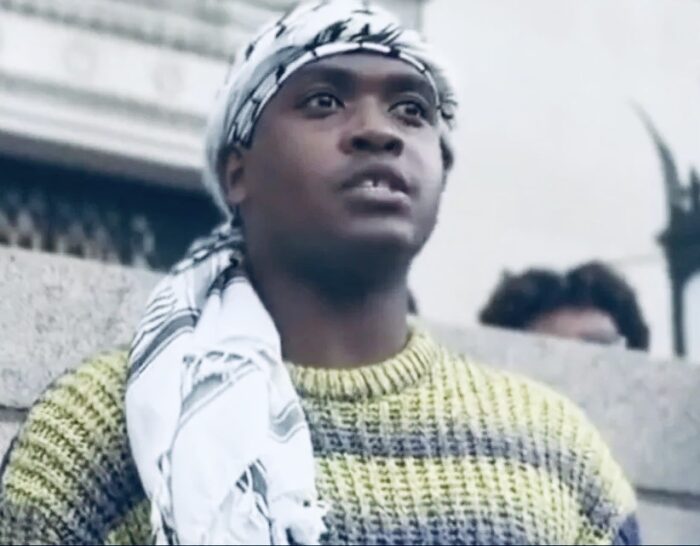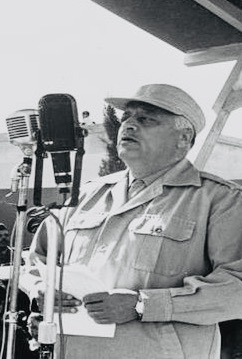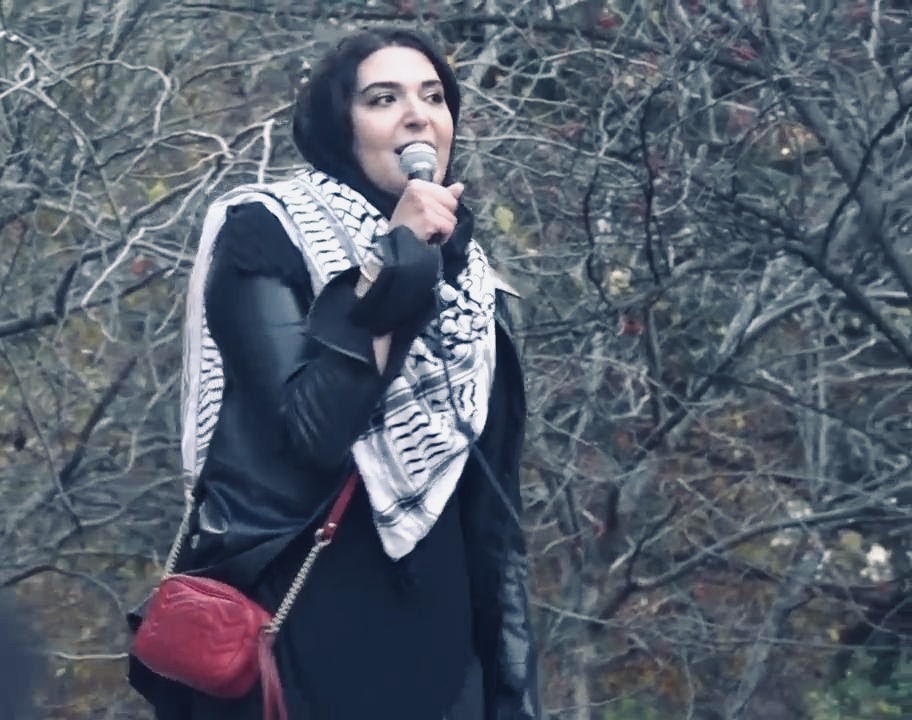One of the net effects of Hamas’ terrorist attacks in southern Israel on October 7 last year is a marked tilt toward extremism in the ranks of Palestinian activists in the Middle East and the United States.
Surveys indicate that most Palestinians in the Gaza Strip and the West Bank supported the massacre and no longer endorse a two-state solution.
Further afield, in the United States, a substantial number of left-of-center university students, spearheaded by ethnic Palestinians, regarded this unprecedented atrocity as an heroic act of resistance and endorsed the concept of Palestinian armed struggle against Israel. In pursuit of their agenda, they organized marches, set up illegal encampments, and occupied buildings on campuses across the country.
At the epicenter of this lurch toward radical Palestinian nationalism were Columbia University students and a pro-Palestinian protest group, Within Our Lifetime, that aided them.

Columbia University Apartheid Divest, which has been in the forefront of the encampment movement in the United States, celebrated the events of October 7 by three means.
It distributed a newspaper glorifying the attacks as a “moral, military and political victory.”
It stated on Telegram that “the Palestinian resistance is moving (its) struggle to a new phase of escalation, and it is our duty to meet them there.”
And it rescinded an apology on behalf of one of its members, Khymani James, who said that “Zionists don’t deserve to live” and stated that they should be “grateful” that he was not “going out and murdering” them. “I will not allow anyone to shame me for me for my politics,” added James, who has been suspended from Columbia. “Anything I said, I meant it.”

Columbia University Apartheid Divest’s sister organization, Students for Justice in Palestine, hailed October 7 as “a historic act of resistance against decades of occupation, apartheid and settler colonial violence.” It praised a Hamas terrorist attack in Jaffa on October 1 that claimed the lives of seven people and described Iran’s ballistic missile barrage against Israel on the same day as a “bold move.”
Perhaps the most vocal representative of Palestinian rejectionism is Nerdeen Kiswani, 30, who co-founded Within Our Lifetime in 2018 and who has been influenced by the revolutionary thinker Frantz Fanon.
Recently, she wrote, “We don’t want Zionists in Palestine, New York City, anywhere.” A few months ago, Within Our Lifetime targeted the Brooklyn Museum and its Jewish director and board members, claiming they were complicit in genocide in Gaza.
The daughter of Palestinian refugees from the West Bank, she was born in Jordan and raised in Brooklyn. She was a co-founder of the Students for Justice in Palestine chapter at Hunter College in New York City.
Last week, on X, she wrote, “Long live October 7th.” And in a speech in the Grand Central Terminal in Manhattan, she chanted, “Long live the intifada” and “Judaism, yes, Zionism no! The state of Israel has got to go!”
Like Hamas and Hezbollah, Kiswani supports the “complete and total liberation” of Israel “by any means necessary” and thinks it must be replaced by a Palestinian state stretching from the Jordan River to the Mediterranean Sea.
She dismisses the two-state solution, saying it has been rendered irrelevant by Israel’s firm opposition to a Palestinian state in the West Bank and Gaza.
Israeli politicians from Prime Minister Benjamin Netanyahu on down have emboldened Palestinians like Kiswani by rejecting Palestinian statehood, building and expanding settlements in the West Bank, and tightening the occupation.
Yet it is doubtful whether Kiswani was ever supportive of a two-state solution. She claims that Palestine, within its historic boundaries, belongs entirely to the Palestinians and that Israel is an illegitimate and colonial settler state born in sin with no rights to the land. She is ready to shed the blood of countless Palestinians to attain a one-state solution.

She comes from a long line of Palestinian extremists: Haj Amin al-Husseini, the mufti of Jerusalem during the British Mandate; Ahmad Shukeiri, the PLO’s first leader, and Yahya Sinwar, the current leader of Hamas. Like them, she rejects compromise in the form of a Palestinian peace agreement or a non-belligerency pact with Israel.
Palestinians of Kiswani’s generation have intimidated some Jewish students at universities, fostered a tacit climate of antisemitism, pushed Israelis and Jews in the Diaspora further to the right, and shattered the prospects of Jewish-Palestinian dialogue and amity.
Their all-or-nothing formula, the antithesis of the spirit of the Oslo peace process era, has produced little or no tangible benefits for the Palestinians and has widened the political gap between Israel and Palestinians.
This is their grim legacy.
